For some reason I was expecting Michael Gerson not to be working from the old company offices in darkest Whetstone when I booked the appointment for, what was for me, one of the key interviews of my journalistic life.
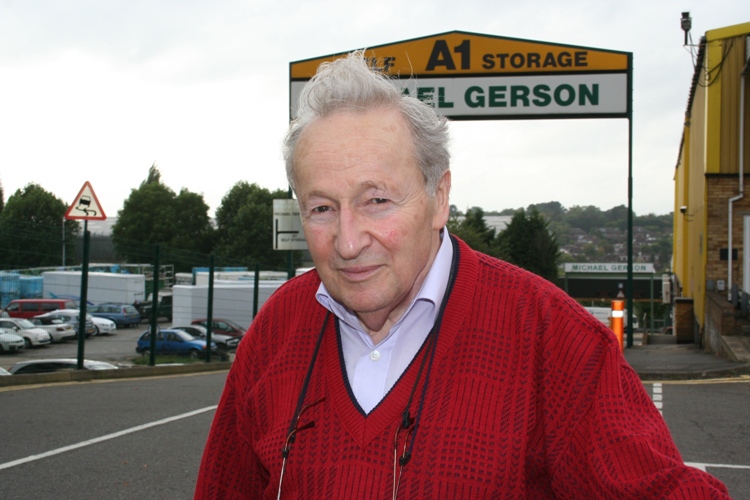
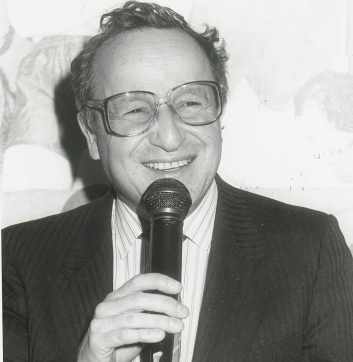 He sold the moving business some years ago and the company that still bears his name now operates from Potter’s Bar five miles away. I had rather expected Michael to be running his self storage, investment and leasing businesses either from home or a plush, oak-lined office somewhere in Mayfair. Not so. As always, Michael is never quite what you expect him to be.
He sold the moving business some years ago and the company that still bears his name now operates from Potter’s Bar five miles away. I had rather expected Michael to be running his self storage, investment and leasing businesses either from home or a plush, oak-lined office somewhere in Mayfair. Not so. As always, Michael is never quite what you expect him to be.
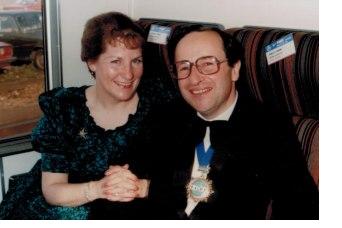 Michael started his moving company at the age of 23 in 1961. He, and his wife, Shirley, married the following year. During the 1970s and 1980s Michael, with the support of Shirley who he still calls ‘the Boss’, built the company into a phenomenon within the industry. He employed and trained some of the leading members of the industry; carved a niche for providing exceptional service in the corporate market; moved a long list of household names including Margaret Thatcher; performed a series of impressive relocations including the Royal Armouries (42,000 priceless items) from the Tower of London to Leeds; was delighted and proud to serve as FIDI President; and did more for the UK’s international moving industry, largely behind the scenes, than probably anyone alive today. During all of this, he made money too.
Michael started his moving company at the age of 23 in 1961. He, and his wife, Shirley, married the following year. During the 1970s and 1980s Michael, with the support of Shirley who he still calls ‘the Boss’, built the company into a phenomenon within the industry. He employed and trained some of the leading members of the industry; carved a niche for providing exceptional service in the corporate market; moved a long list of household names including Margaret Thatcher; performed a series of impressive relocations including the Royal Armouries (42,000 priceless items) from the Tower of London to Leeds; was delighted and proud to serve as FIDI President; and did more for the UK’s international moving industry, largely behind the scenes, than probably anyone alive today. During all of this, he made money too.
In my interview I wanted to find out a little about the history and what drove him to join the moving industry in the first place, and how he had succeeded in building a culture of quality that had become the hallmark of the company and an aspiration for much of the industry. I wanted to discover what made Michael Gerson different.
The early years
Of course the story started long before 1961. It was Michael’s grandfather, one of 20 children living in Germany, who started the ball rolling. He came to London in the 1870s with the intention of catching a ship to Australia. Emigration in those days was a huge decision and one that only a person of extraordinary character would even consider. While waiting for the ship that was due to sail a week later, a friend offered him a job working with a forwarding company. He never caught the ship. Like so many since, the moving business had gripped him.
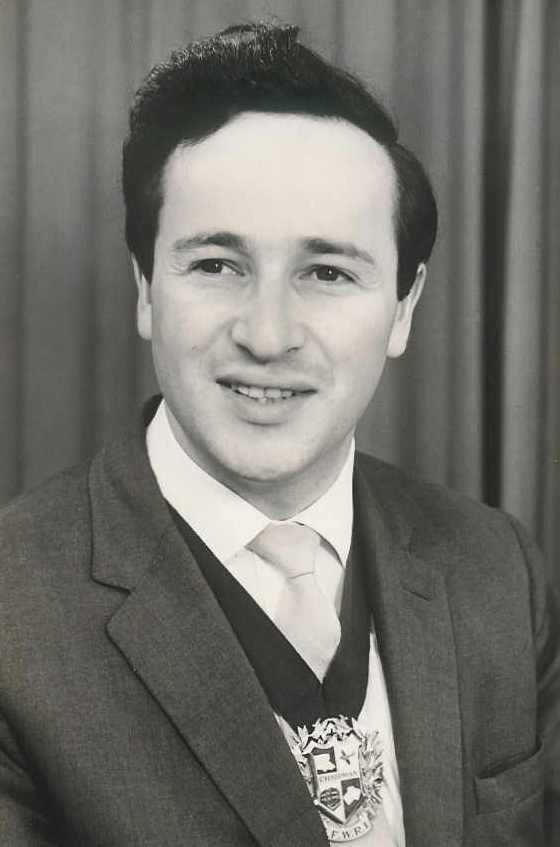
“He must have been an enterprising man,” said Michael. “He travelled to the USA and Canada several times gathering ideas before starting his own business The Pall Mall Deposit and Forwarding Co. all before 1900. He got some help with finance and put up a prestige building between Lower Regent Street & Haymarket in London. Can you imagine putting up a new building there now!” Michael’s father and uncle were also involved so the family business was already in the making.
It was some years later that Michael got the opportunity to branch out himself. He had been away learning the trade in France, Germany and Switzerland when the business, or rather the property it occupied, caught the eye of businessman Sir Maxwell Joseph. “He made the shareholders an offer they couldn’t refuse and, quite rightly, they accepted,” Michael explained. At the same time as losing his job, he proposed to Shirley, which she accepted but insisted that Michael should not work for anyone other than himself.
Michael wanted to take on the very prestigious Pall Mall company name but that proved to be impossible. Michael Gerson Limited was, therefore, born to specialise in overseas moving. “Of all the things we did at the old company, overseas moving seemed to me to be the activity which we did least well,” said Michael.
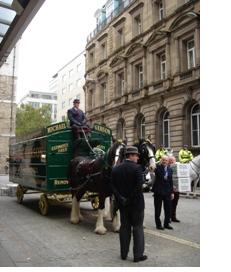 Building quality
Building quality
The early days, by Michael’s own admission, were horrendous. The company started in an old garage in Finchley with a sloping floor and not even a nod to modern health and safety requirements. “We subcontracted everything,” he admitted. “The business was probably a shambles by my reckoning.”
Michael knew that he wanted to work for the multinationals because he figured that it would be less price sensitive. “Companies will usually foot the bill for sending individuals abroad, so only the best is good enough, and they don’t care how much it costs.” He said that many moving companies make a huge effort but make very little profit. His best piece of advice came from Joe Luxford who told him: “Michael, you can’t afford to work for poor people". He kept to that advice and aimed for the top. “I realised that you normally amass the same amount of paperwork and spend just as long shipping a 40ft container as 150ft of groupage. So you might as well do the bigger jobs.”
Quality workmanship and service therefore became part of the brand. Michael had already had a good grounding in the industry and, having spent time working abroad, had a good knowledge of languages, essential in those days for working in Europe. He was also a free spirit. He had seen how other companies operated across the world and wasn’t hemmed in by the ‘we’ve always done it this way’ attitude.
Training had always been important to Michael. He said that the people that had most influenced him during his working life were the trainers at The Institute* - people like Ken Berger, Harold Holgate, Peter Gooding, Richard Lomath, Dennis Pearce, Sam Elliott and Geoff Pygall. These people gave their time freely and appeared to be more concerned about the future generation than their own. Many would include Michael in the same breath along with other Michael Gerson Ltd. employees such as Brian Charles and Colin Gordon who did more than their fair share to teach others.
“We didn’t enforce quality with systems, box ticking,” said Michael. “If something went wrong the directors got involved to find out why and how we could prevent it. We had a no-blame culture. We’d speak to the foreman first to get to the bottom of the problem, then modify our methods. That was the key to achieving the quality. We had very short communication lines; we didn’t send memos to each other.”
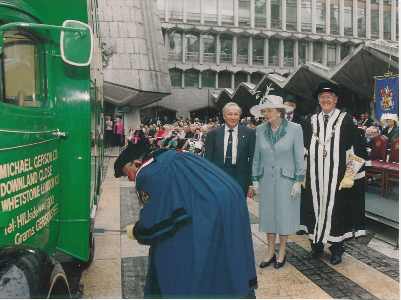
Another keystone of quality for Michael was to make sure the company was not departmentalised. “People are under stress when they move. They don’t like to have to speak to lots of different people. We trained our staff so they could talk to the client about everything. The client always spoke to the same person and was not passed around or put on hold listening to music. Everyone had their own personal letterheads and almost nobody had a title. This way the customer knew you could do anything. It created real confidence.”
It also created a problem. Staff would learn their trade by handling smaller accounts and then move up to larger ones. When they had built a very strong relationship with a company it was difficult to move them on. But Michael had worked out a foolproof way of doing it. “When someone was changing from one account to another we would say they had gone on holiday and the replacement took over until they got back. After a couple of weeks they were comfortable with the new person anyway.”
Michael said that these relationships were very important. “I don’t think people bother about these things anymore. They are more interested in systems than psychology. If you are moving top people, who are regarded as top by their employers, you ought to match the service to that.”
Foremen, according to Michael, are the most important people in the company because they have to take the tough decisions on the spot. Michael empowered them by giving them the authority to negotiate with the client. He also took the unusual step of putting all foremen on salary. “If you pay people an hourly rate they complete the job and then drink tea at your expense, which is daft,” he explained. “Being on salary meant that the foremen had an interest in getting the job done efficiently rather than spinning out the day. They all reacted very well.”
*The Institute of the Furniture Warehousing and Removals Industry renamed The Movers Institute in 1993 and disbanded in 2008.
Specialisation
Joe Luxford gave Michael his piece of gold-plated advice, so I asked Michael what advice he would give to moving companies. “My advice would be to find a niche. It doesn’t really matter what the niche is but the thought you give it in advance will eventually be reflected in your performance. Specialise in something. If you just do the same as everyone else you start selling on price. Anyone who does a specialist service, defined geographically or moving something very valuable for example, will stand a better chance than being a generalist.”
Industry work
Michael worked tirelessly with the wider industry to improve standards. His father had been the president of the National Association of Furniture Warehousemen and Removers (that became BAR in 1972) in 1939-40 and Michael is a Past President of FIDI. Although he was always keen to improve quality he was never a fan of formal Standards that he considered to be “just box ticking”. “When ISO came in we got quite enthusiastic then found that we could write our own manual, so we never bothered with any of these Standards.” Instead he took a more practical approach with the Michael Gerson Medal being awarded every year to the person with the highest marks in the Institute Practical Estimating examination.
Michael was also one of the instigators of the BAR’s IMMI scheme, that provides a finance guarantee to cover pre-payments for overseas moves, and one of BAR’s representatives to IMMI for many years. “IMMI was not for us but it did help to differentiate international movers from forwarding agents. It is a good thing for some companies, depending on how they sell it to their customers.” Michael did acknowledge though that its purpose was somewhat eroded nowadays as many people pay by credit card and, therefore, have some element of financial protection.
Retirement?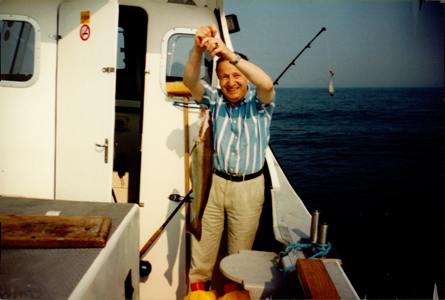
At the age of 76 Michael still works from a modest office within his self storage company on the Michael Gerson Ltd site. The walls are festooned with Liz Moon original paintings and original cartoons, moving van or customer-related. His investment company still owns the buildings but they are now let to tenants. Visiting again now that so many changes have taken place seems a little eerie with the old company sign still straddling the entrance, but the moving company long gone.
For the last four years or so, Michael has been suffering from Parkinson’s disease and so has begun to cut back on his time at the office. The finance side of the business is now ably run by his son, Anthony. Michael said that he had never considered retiring until now but he sometimes struggles to keep his thoughts on track. There was little or no sign of it while I interviewed him.
So as Michael prepares for his retirement and a little more time getting under Shirley’s feet, perhaps it is for us all to reflect on the company he created and the lead it provided to so many would-be imitators around the world. To do the same all you need is to find a niche; have the confidence of your convictions; work hard; open your mind to what is possible; employ great people, train them, empower them and trust them; and have a fundamental understanding of the human condition. Simple really!
Photos: From the top - Now 74, Michael Gerson still works at the old offices in Whetstone; Michael speaking in 1992; With his wife Shirley during his FIDI presidency in 1982; As chairman of The Institute of the Furniture Warehousing and Removals Industry; Moving the Lord Mayor of London at Mansion House; With Lady Thatcher at Cart Marking; A successful fishing trip.
Click here to see the next Editor's pick